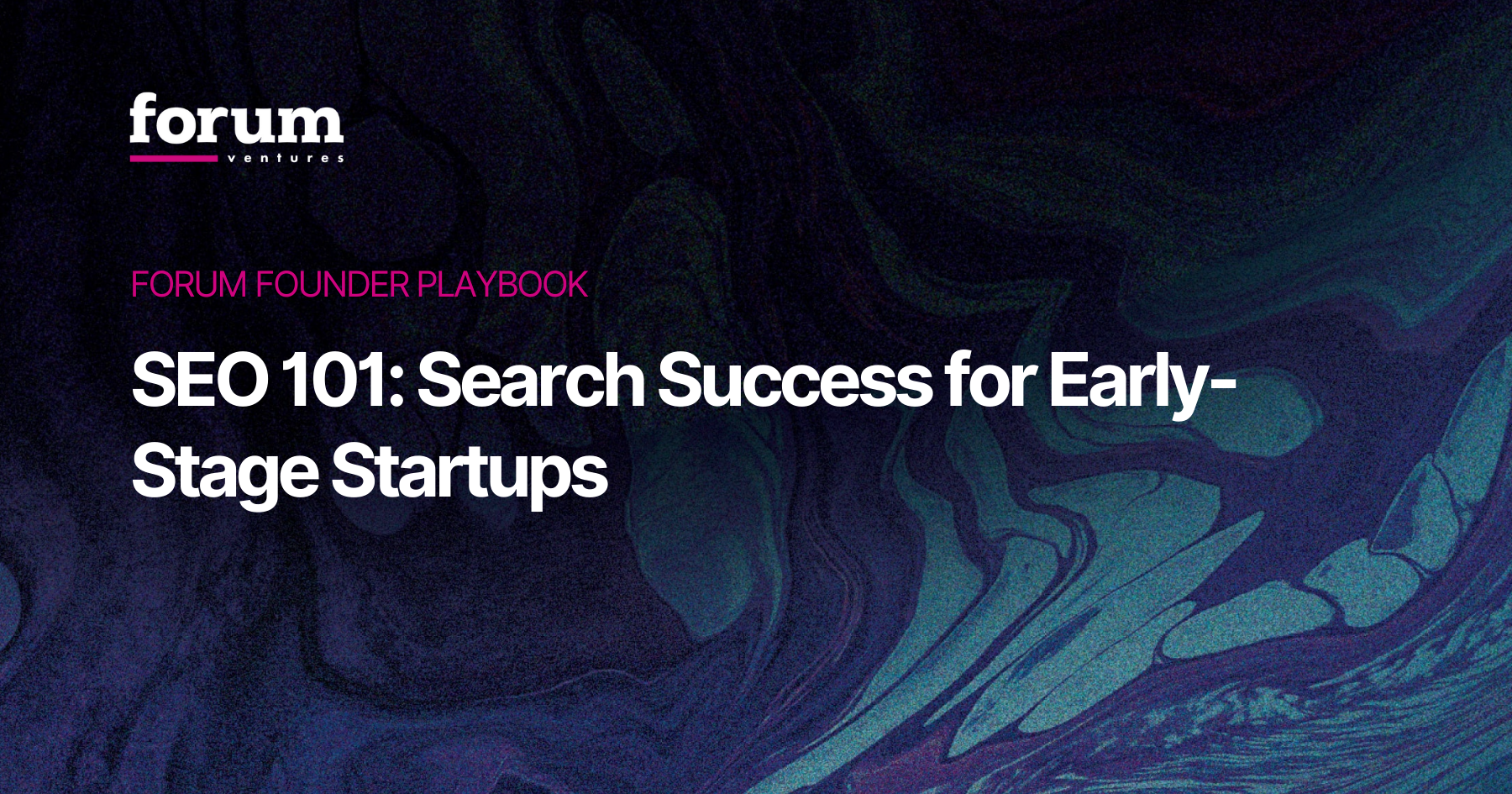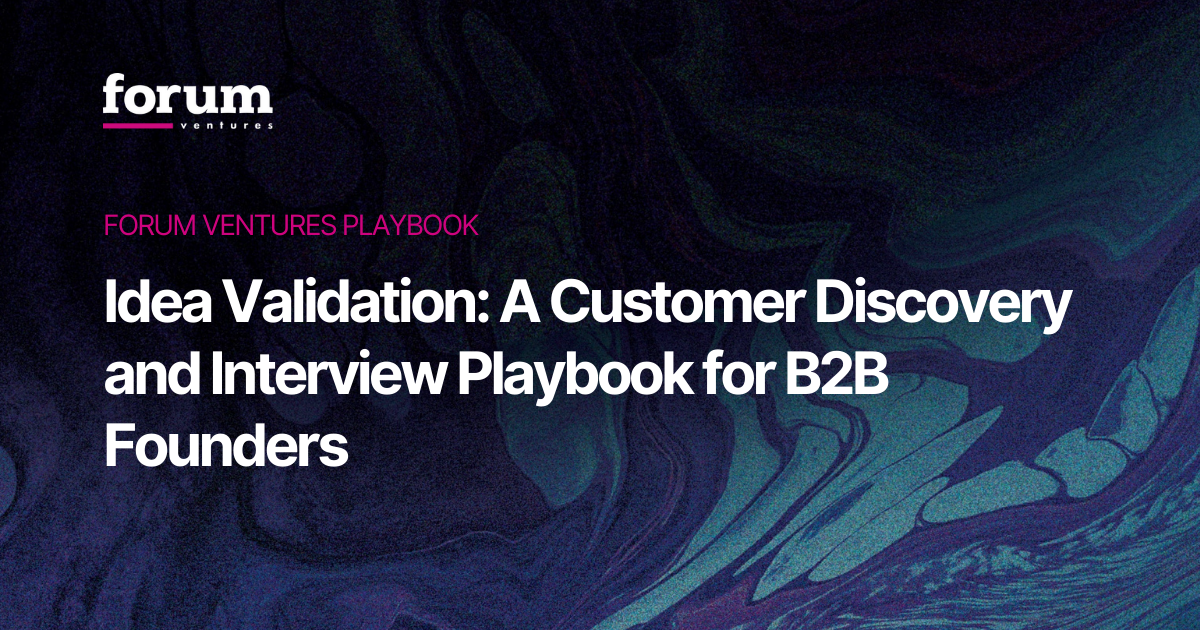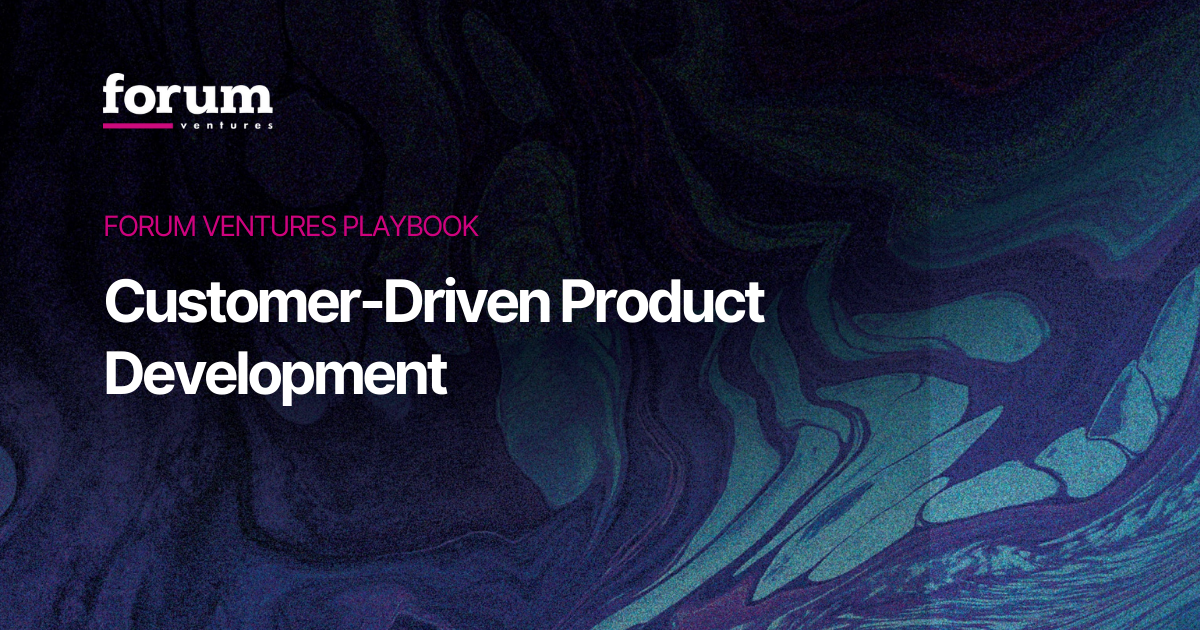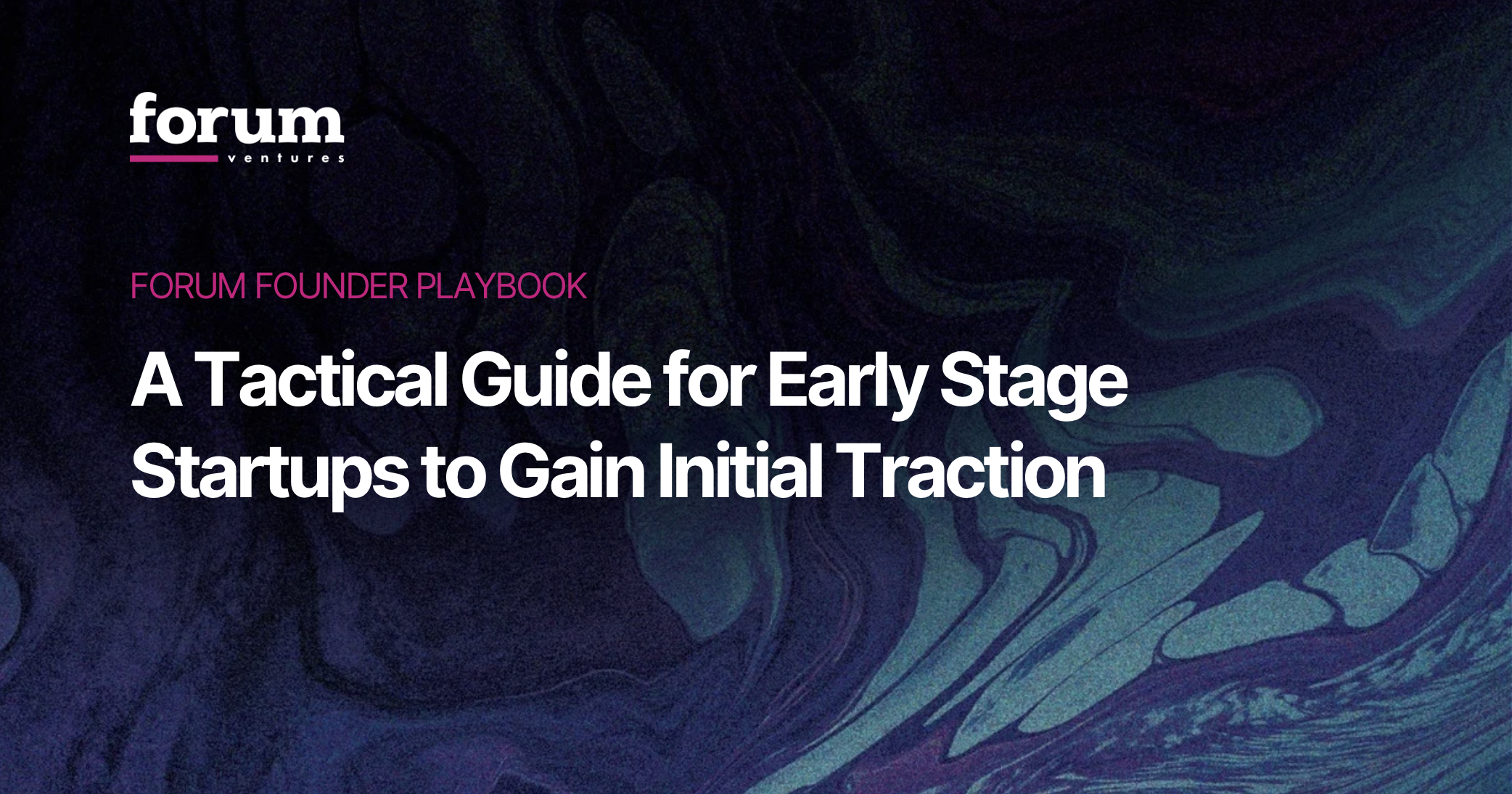This playbook is based on a workshop led by Peter Guba, Founder of Profit Mill and former Googler, created exclusively for Forum Ventures portfolio companies.
Introduction
When you’re just starting out, SEO can feel like a black box. Is it worth your time? Should you start now or wait until later? And how do AI and changing search behaviors fit into the picture?
This playbook breaks down the foundations of SEO for early-stage founders. It’s designed for B2B SaaS startups with limited time and money but a need to set strong marketing foundations. You’ll learn when to start, what to prioritize, and how to lay the groundwork without burning months on wasted effort.
By the end, you’ll know how to:
- Decide if SEO is the right channel for you right now.
- Set up a fast, Google-friendly website.
- Optimize your core pages with simple, high-impact steps.
- Build authority with backlinks and partnerships.
- Avoid common traps that cost founders time and money.
Step 1: Decide When to Start
SEO is powerful but slow. Unlike paid ads, which show results immediately, SEO takes at least 6 months to deliver meaningful traffic. That means timing matters.
Checklist before you invest in SEO:
- Do you have at least 10 paying customers? (Before that, focus on referrals, outbound, and hustle.)
- Is your ICP and positioning clear? (Otherwise, you may waste months ranking for the wrong audience.)
- Do you have a basic marketing site that’s fast, mobile-friendly, and explains what you do?
If you answer yes to all three, you’re ready to start laying SEO foundations.
Step 2: Understand the Three Pillars of SEO
- Technical SEO
- Goal: Make sure Google can crawl and understand your site.
- Starter actions:
- Run your site through Google PageSpeed Insights.
- Compress large images (they’re the #1 cause of slow load times).
- Use a CMS like Webflow or WordPress (good defaults for SEO).
- Avoid single-page websites. Each keyword you want to rank for needs its own URL.
- Remove duplicate content (don’t just copy-paste pages with minor edits).
- On-Page SEO
- Goal: Make each page clear, useful, and keyword-aligned.
- Starter actions:
- Research 5–10 core keywords for your category (using tools like Ahrefs or Semrush).
- Add keywords naturally to:
- Page titles (keep them under 60 characters).
- Meta descriptions (under 160 characters).
- Headings (H1, H2s).
- URL slugs (short and descriptive).
- Write high-quality content that keeps visitors on your site (Google rewards time on page).
- Add internal links: every blog should link back to your product/solution pages.
- Add image alt text and descriptive file names.
- Off-Page SEO
- Goal: Build authority by getting other websites to link to yours.
- Starter actions:
- Create free profiles on review sites and directories (e.g. G2, TrustPilot, AI startup directories).
- Use Ahrefs to see where competitors get backlinks, then pitch those blogs/podcasts.
- Partner with non-competing startups that sell to the same audience:
- Swap guest blogs.
- Mention each other in newsletters.
- Link to each other’s sites.
- Pitch yourself to podcasts and industry blogs (they need content, you need links).
Step 3: Set Up Your Foundation in 30 Days
Week 1: Technical Check
- Run Google PageSpeed Insights.
- Fix top issues (images, mobile responsiveness).
- Hire a contractor on Upwork/Fiverr if needed ($50–$200 one-time).
Week 2: Core Pages
- Identify your 2–3 most important pages (usually homepage + product page + solution/industry page).
- Rewrite titles, meta descriptions, and headings with your keywords.
- Add 3–5 internal links per page.
Week 3: Content & Linking
- Publish 1–2 blog posts that answer real buyer questions.
- Add links back to your main product/solution pages.
- Rename and optimize all images.
Week 4: Authority
- Submit your company to 10+ directories and review sites.
- Reach out to 3–5 podcasts or blogs your ICP reads/listens to.
- Partner with 1–2 non-competing SaaS companies for content swaps.
Step 4: Assess Competitiveness Before You Scale
Not every SEO space is winnable. If you’re up against HubSpot or Salesforce, you won’t outrank them without years of effort.
How to check your competition:
- Put your core keyword (e.g. “legal intake software”) into Ahrefs Keyword Explorer.
- Look at who ranks top 10. Are they massive incumbents, or smaller players?
- Study competitors’ backlinks. Could you get links from the same places?
- Look for long-tail opportunities (“AI legal intake automation for SMBs” vs “legal software”). Lower volume but higher intent.
Step 5: Budget for Growth
SEO isn’t free. You’ll pay in time or money:
- DIY / contractor: $50–$500 for audits and fixes.
- Freelancer: $3K–$5K/month for ongoing content + optimization.
- Agency / programmatic SEO: $8K–$10K/month. Scales content into thousands of pages.
Early stage? Start with the DIY/contractor level. Upgrade when SEO becomes a proven channel.
Step 6: Don’t Forget AI Search
Search is shifting. AI overviews and tools like ChatGPT now answer questions before users click. That means:
- Zero-click SEO is real: people may see your brand without ever visiting your site.
- Comparison content works: blog posts like “Top 5 tools for [category]” (listing yourself + competitors) often get picked up in AI responses.
- Your audience matters: tech-savvy buyers are more likely to discover products through ChatGPT.
Tip: Test it yourself. Ask ChatGPT: “What’s the best [your category] software?” If you’re not mentioned, create comparison content and get listed in directories that ChatGPT references.
Step 7: Keep Iterating
SEO is never “done.” Keep testing, publishing, and tracking. Use these signals to measure progress:
- Domain Rating (Ahrefs).
- Keywords ranking in top 10.
- Organic traffic in Google Analytics.
- Leads sourced from inbound.
Final Takeaways
- Wait until you have ~10 customers and product clarity before going all in.
- Start small: fix technical SEO, optimize 2–3 key pages, build a few backlinks.
- Think long-term: SEO is a 6+ month play, but pays compounding dividends.
- Stay adaptive: with AI changing search, focus on high-intent, bottom-of-funnel content.
Done right, SEO is one of the highest ROI channels for B2B founders. Start simple, stay consistent, and scale as you grow.

.avif)
.avif)








